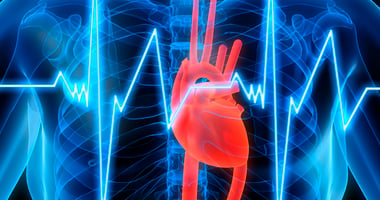Cardiovascular, Respiratory Disease Among Top Causes of Death in Adults With Schizophrenia
 |
“The findings… highlight the need to focus on interventions that target lifestyle risk factors such as smoking and poor diet, treat medical risk factors such as hypertension and hypercholesterolemia, and assertively manage physical comorbidities such as diabetes mellitus and cardiovascular disease,” wrote John McGrath, M.D., Ph.D., of the Queensland Centre for Mental Health Research and colleagues in a related editorial.
For the study, researchers from Columbia University and Rutgers University examined data from more than 1 million Medicaid patients aged 20 to 64 with schizophrenia collected from 2001 to 2007; this included 74,003 deaths, of which 65,553 had a known cause.
Among the 65,553 deaths over the study period, 55,741 were from natural causes, with cardiovascular disease having the highest mortality rate (403.2 per 100,000 person-years), accounting for almost one-third of all natural deaths. Cancer had the second highest mortality rate (200.5 per 100,000 person-years), with lung cancer being the most prevalent cause of death by cancer (74.8 per 100,000 person years). Other leading causes of natural death in people with schizophrenia included chronic obstructive pulmonary disease (89.5 per 100,000 person-years) and diabetes (61.8 per 100,000 person-years).
Unnatural causes of death accounted for 9,812 deaths, with suicide accounting for about one-quarter of these deaths. Nonsuicidal substance-induced death, mostly from alcohol or other drugs, was also a leading cause of death (95.2 per 100,000 person-years).
“The results from this study confirm a marked excess of deaths in schizophrenia, particularly from cardiovascular and respiratory disease, that is evident in early adulthood and persists into later life,” the study authors concluded. “These findings support efforts to train mental health care professionals in tobacco use prevention and treatment and in implementation of policies that incentivize smoking control interventions in settings treating patients with schizophrenia.”
For related information, see the Psychiatric News article “What Can Psychiatrists Do for People With SMI?” and the Psychiatric Services article “Use of Active-Play Video Games to Enhance Aerobic Fitness in Schizophrenia: Feasibility, Safety, and Adherence.”
(Image: Naeblys/Shutterstock)




